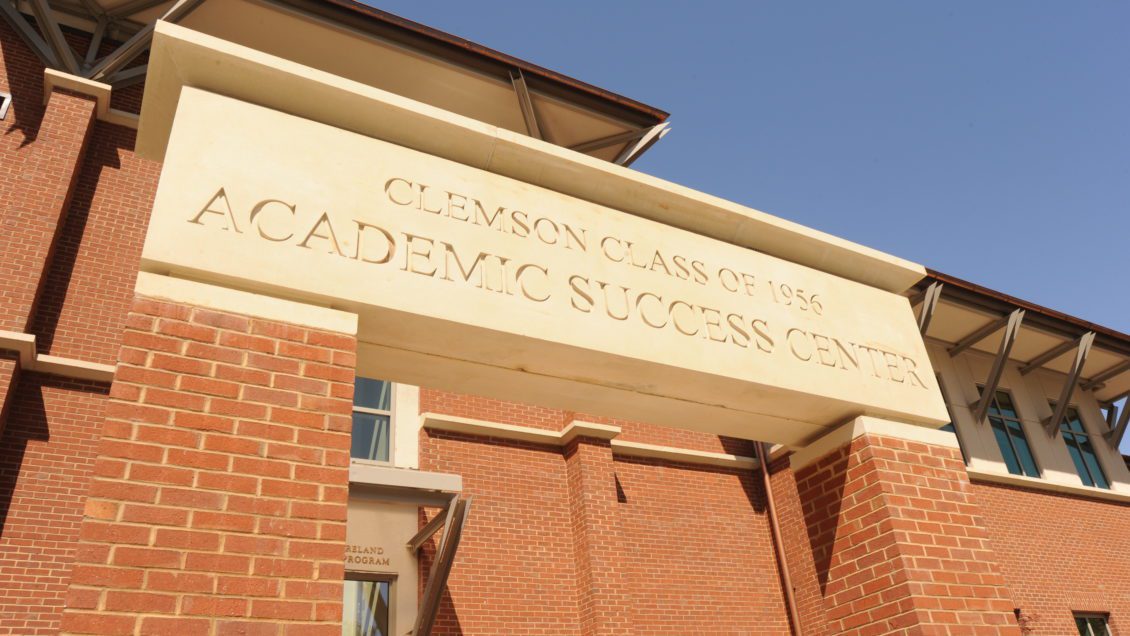Last year, 3,712 students participated in Peer-Assisted Learning (PAL) sessions and 1,241 visited tutors at the Academic Success Center (ASC).
The ASC employs nearly 200 paid peer leaders each year, providing support to undergraduate students to help them be more successful in their classes. It offers one-on-one tutoring and Peer-Assisted Learning (PAL) groups to support students in foundational, high-enrollment courses, such as STEM math or introduction to chemistry.
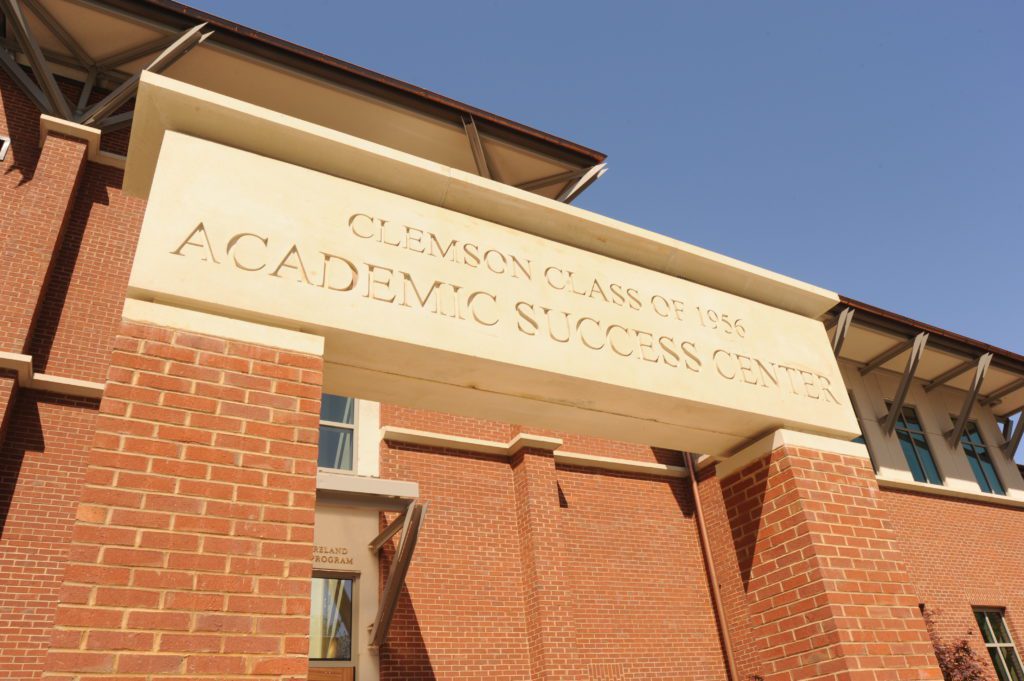
Here are the facts:
- The average grade of students in courses offered by PAL who did not participate in the program was 2.49, compared to 2.70 for students who attended PAL once and 2.91 for those who attended six or more times.
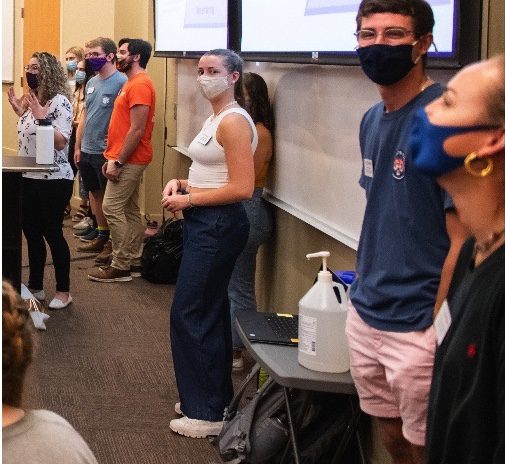
- Freshmen in the 2019-20 cohort who participated in PAL or tutoring had higher scholarship retention and freshman-sophomore year retention than those who did not.
Pictured above: Trainers engaged new tutors for the 2021 academic year on August 16 at the Academic Success Center.
Peer leaders do more than support students with their academics, they help them adjust to college life, according to Rachel Anderson and Jenai Brown, ASC’s associate director of Peer Learning Support and the coordinator of tutoring respectively. Peer leaders are undergraduates themselves, often juniors or seniors who have had the same experiences as the students they support.
Anderson seeks to market the services offered at the Class of 1956 Academic Success Center to students, faculty and staff.
“‘How can our program support you’ and helping us tell that story is important. I’ve really been excited about being able to take on the role of bringing in partners for our programs, collaborating with folks on campus, spreading the word,“ said Anderson.
“Sometimes it’s the frustration of ‘I’m trying to navigate college and deal with life things that are going on and I need groceries and laundry done and all these other things,’” Anderson said. “They may not be able to focus in on the content the way they need to, and I think our peer leaders are able to provide a little bit of encouragement in some of those areas, too.”
That support is what drew junior Nella Stringer of Anderson to become a tutor. “I had a rough go of adjusting to college, and I really felt like I could connect with students in that regard as well as academically,” she said.
Ali Pitarresi shared her similar experience.
“I became a PAL leader because I struggled during my first semester freshman year, but I had this amazing chemistry 1 PAL leader. I attended all of her PAL sessions and she created a really welcoming and comforting environment that was something I was really missing at the time,” said the senior civil engineering major from New Providence, New Jersey.
Of course, the main job of tutors and PAL leaders is to support students academically.
Peer leaders have experience in the classes and can help students understand what study approaches may be beneficial and how to develop the skills they need to be successful, Brown said.
“We’re not looking for an expert in the content because we always promote the instructor as the person who knows all the information or has a way of connecting you to the right resources,” she said.
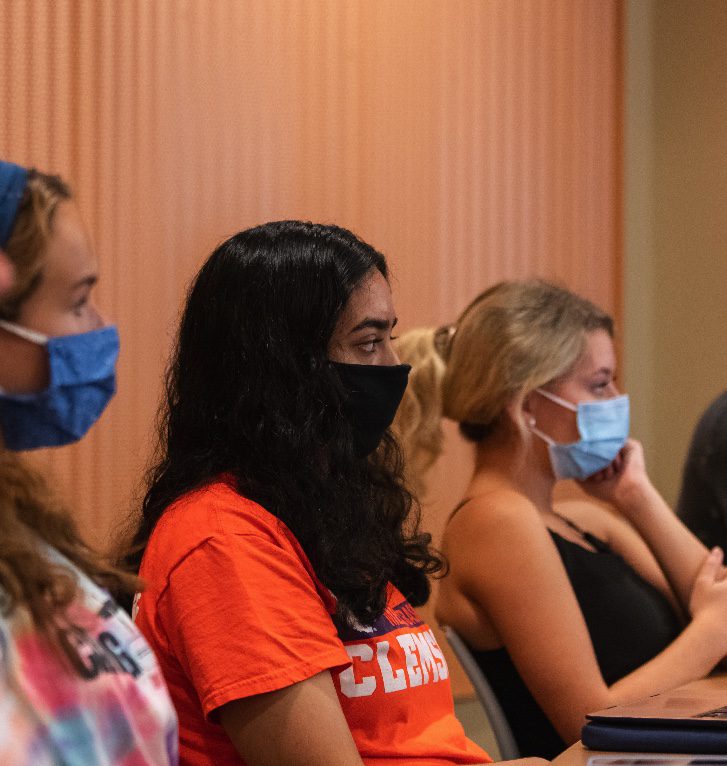
We’re not looking for an expert in the content because we always promote the instructor as the person who knows all the information or has a way of connecting you to the right resources.
Rachel Anderson
Pictured above: New student tutors participating in training August 16 at the Academic Success Center.
During a two-day training session for the peer leaders before the start of the semester the focus is on skills needed to have productive interactions with students and how to help them be more confident in what they’re learning said Anderson.
“We talk a lot about experiences as first-year students. Like what are they having to unlearn from their high school years? And what do they have to rebuild to be successful in college?”
They introduce them to metacognition – awareness of one’s thinking – problem-solving theory and “what happens in your brain when you solve a problem,” Anderson said.
They also teach them to ask questions.
“The way my tutor would ask questions to help guide me to the answer, the way he never made me feel dumb and the way we would spend some session time just talking about life made the experience very impactful,” Stringer said of the tutor who helped her this summer with her physics and calculus class. “It definitely impacted my approach to tutoring.”
“Some of our peer leaders have things come a little bit easier to them, or they’ve been really confident in their learning, but they’ve learned how to adapt to different situations and feel like they could share those study strategies that they’ve adapted for themselves,” Anderson said.
Some have gone to tutoring themselves or had to change majors along the way, experiences that help them connect with students.
“We think that all of those folks have really brought a lot of value to our programs and have a lot to share with students,” she said. “And so it’s a pretty wide range of folks that I think can be really successful in this program.”
Students can apply to be PAL leaders or tutors on the ASC website. Some are encouraged by others to apply, like Nan Miles, a pre-med senior from Spartanburg.
Miles participated in a PAL group sessions for an anatomy and physiology course she was in. It is a difficult course with a lot of material and the professor encourages students to join the PAL sessions for support. Later, the professor told Miles she should apply to be a PAL leader for the course.
“I got so much from anatomy and physiology PAL, I wanted to help,” she said.
She enjoys the role because the program helps participants become better students in general, not just in a single course, but teaching them ways to study, review material and take tests.
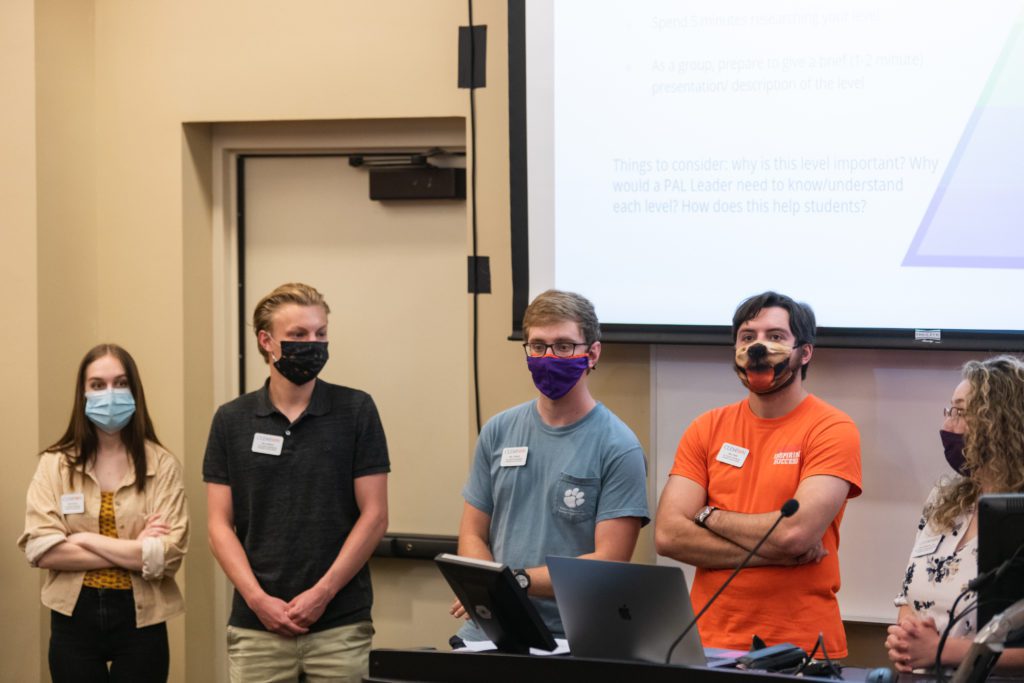
I think everyone should be doing all they can to advertise PAL to their students. I think there are some out there who don’t know how much impact PAL can have on their students.”
Nan miles, senior
Pictured above: Trainers engaged new tutors for the 2021 academic year on August 16 at the Academic Success Center.
“I think everyone should be doing all they can to advertise PAL to their students,” Miles said. “I think there are some out there who don’t know how much impact PAL can have on their students.”
Anderson agrees. “We can tell the students as much as we want, ‘This is really valuable, you need to go,’ but when they hear it from their instructor or their adviser or someone else that they really respect on campus that goes much further in helping them realize the value of those services.”

